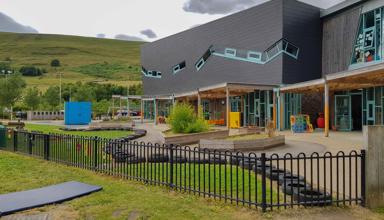Article written by Michael Dauncey, National Assembly for Wales Research Service
The Welsh Government has announced that it will be supporting the removal of Part 3 of the Education (Wales) Bill which is currently at Stage 2 in the Assembly’s legislative process. Part 3 covers the elements relating to provision for learners with special educational needs (SEN), specifically the process for admissions to independent schools and post-16 assessment of need and subsequent provision. The announcement was made in a Cabinet Statement by the Minister for Education and Skills, Huw Lewis, on 6 January 2014. The Minister’s statement referred to the role that the Children and Young People Committee undertook in scrutinising the Bill at Stage 1. In its Stage 1 report, the Children and Young People Committee argued that there would be advantages in including all SEN reforms within a single piece of legislation, providing this could be done in a timely manner, and recommended that the inclusion of some of these within the Education (Wales) Bill be reconsidered. The Committee heard evidence that changes to SEN provision in Wales should be made as part of a single overall item of legislation, rather than making changes to a field already subject to considerable changes, many of which have yet to take place. For example, there is a wide variation in Welsh local authorities’ use of SEN statements (although this does not necessarily correspond to standard of provision) and some local authorities have already started to evolve practice along the lines of the Welsh Government’s stated future policy direction. Wider reforms to the SEN framework, consulted on back in 2012, are planned before the next Assembly election in 2016. These reforms include replacing the term ‘special educational needs (SEN)’ with the more flexible ‘additional learning needs (ALN)’ and ‘statements of SEN’ with ‘Individual Development Plans’. In his statement, the Minister has said that the changes to SEN (or ALN) will now take place in ‘cohesive’ and ‘holistic’ legislation. One of the particular concerns expressed about the Bill during the Committee’s scrutiny was that a duty on local authorities to assess a post-16 learner’s education and training needs would only apply where that learner had a statement of SEN, despite a lack of consistency in how these were used. The Committee concluded that this could lead to unequal outcomes for learners. Such issues were highlighted in the Stage 1 debate on the general principles of the Bill in Plenary on 10 December 2013. At Stage 2, scheduled to take place on 23 January 2014, the Children and Young People Committee will consider amendments to the Bill. Subject to the Committee’s vote on each of these, a revised version of the Bill will proceed to Stage 3 which is the amending stage in Plenary before a final version of the Bill is potentially passed at Stage 4. Further information on the Assembly’s legislative process can be found here.




